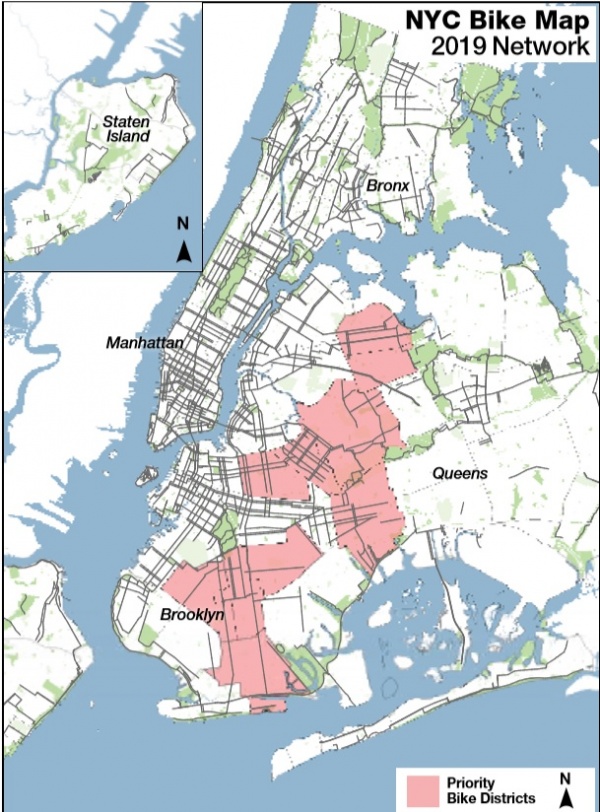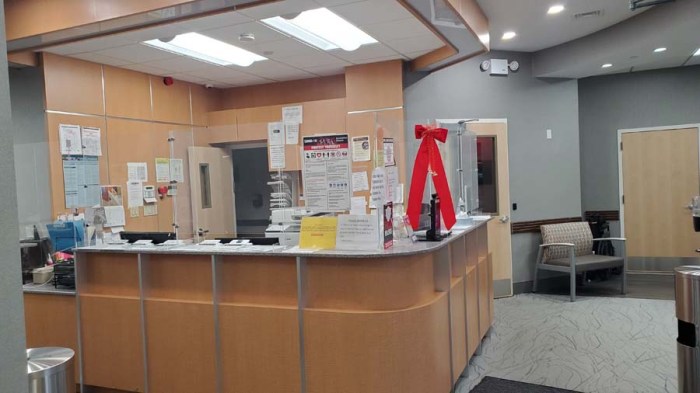
The crash scene where Robert Spencer, 53, was killed while riding his bicycle in Long Island City on March 14 (Photo: @licwalkers)
July 25, 2019 Staff Report
Mayor Bill de Blasio today announced a $58.4 million plan to improve bike safety throughout the city, following a rash of cyclist deaths this year, including two in a 24-hour period just this week.
The wide-ranging plan includes a number of infrastructure, enforcement, policy and outreach measures. It plans to address the fact that cyclist fatalities have seen a sharp rise recently, with 17 so far in 2019, compared to 10 in all of 2018.
“With a dangerous surge in cyclist fatalities, we have to keep pushing the envelope and increasing our efforts. That’s what this plan is about,” de Blasio said in a statement.
On roads, the City plans to start installing 30 miles of protected bike lanes every year, as well as 2,000 new bike parking spaces on an annual basis.
This would accelerate the expansion of the City’s protected bike lane network—an average of 20 new miles were added annually in the past three years, and 25 miles will be added in 2019, according to de Blasio.
The Department of Transportation has also identified “Bike Priority Districts” in Brooklyn and Queens that have a disproportionate number of cyclist fatalities.
The DOT promised to build 75 miles of bike infrastructure in these districts by 2022.
Other infrastructure updates will include turn-lane traffic calming measures at 50 intersections as well as new protected intersection designs. A “Green Wave” pilot program will also use progressive signal timing to discourage speeding.
Along with those changes, the plan involves increased NYPD enforcement on the roads—specifically targeting speeding, failing to yield, blocking bike lanes and oversized or off-route trucks.
The NYPD has stepped up its enforcement of cars parked in bicycle lanes, issuing more than 8,600 summonses in the first three weeks of July.
The NYPD will also stop ticketing cyclists at the sites of fatal cyclist crashes.
Legislative priorities will include requiring a three-foot passing distance between cars and bikes.
Cyclist fatalities involving trucks constituted half of all recent cyclist fatalities, the DOT says. Therefore the “Green Wave” plan has a special focus on trucks, including putting loading zones in residential areas. The DOT will also create a Vision Zero Truck Safety Task Force and release educational materials for trucking companies.
“This bike safety plan is a good blueprint for the future; we must take immediate action to end the carnage on our streets. This is a state of emergency. We cannot wait for more lives to be lost and families shattered,” said Council Member Jimmy Van Bramer in a statement.
For details of the plan, click here.







